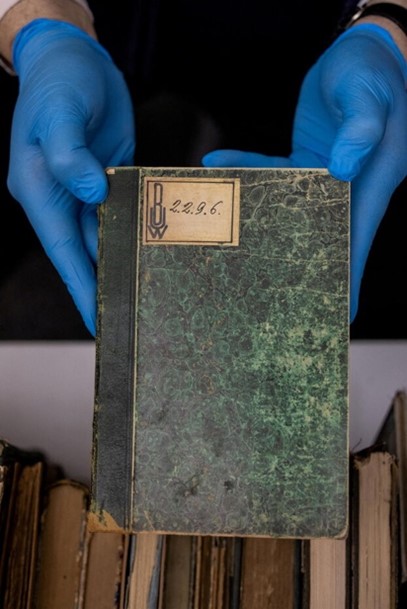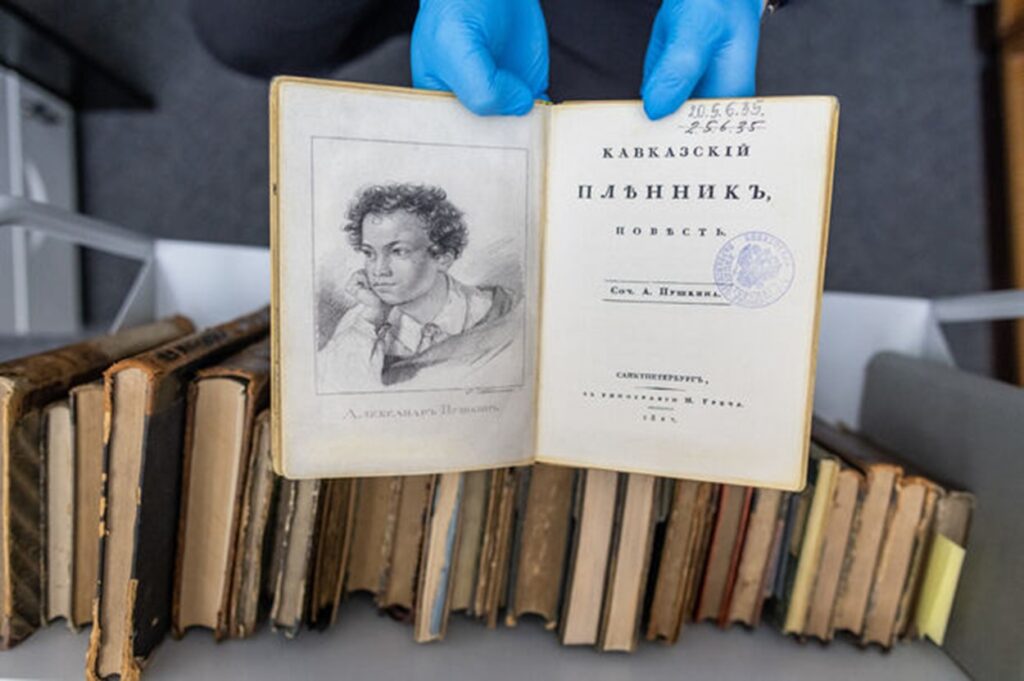Åtvaring! Målretta tjuveri av russisk litteratur
Vi videreformidlar her ei åtvaring frå Europol og Økokrim om tjuveri av russisk litteratur frå ulike bibliotek rundt i Europa.
Det har vore tilfelle av systematiske tjuveri av eldre russisk litteratur i fleire land i Europa. Framgangsmåten har vore lik dei ulike stadene. Originalutgåver av fyrsteutgåver av større russiske forfattarar har vorte kopiert, og bytta ut med falske utgåver.
Politiet i Norge oppfordrar aktuelle bibliotek til å vere merksame, og å vurdere tiltak for aktuelle bøker og verk for å redusere moglegheita for tjuveri.
Profile of Russian Literature Thefts
Prepared by Dr. Peter Campbell
Thefts of Russian literature have been reported in eight countries: Estonia, Finland, France, Germany, Latvia, Lithuania, Poland, and Switzerland. Investigations are ongoing, but the thefts in France are estimated at €800,000, Lithuania valued at €439,000, and Poland over €1 million.
The thefts target books of a specific profile:
- First edition books, primarily 19th-century.
- Literature written in Cyrillic.
- Prominent authors of Russian language literature such as Alexander Pushkin and Nikolai Gogol.
The modus operandi appears similar across all countries. An older gentleman arranges a viewing of the target books and takes photographs of the cover and pages using a phone camera. These images are used to create a near-identical copy by a highly-skilled professional forger, as shown in Figure 1.
Then, young accomplices posing as students request access to the books, providing high-quality fake Scandinavian or Bulgarian passports as identification. They replace the original books with the forgeries and traffic the original to Russia for sale. The suspects in the French case are all Georgian nationals and have been connected to the thefts in Lithuania and Poland.


Further countries and libraries are expected to be impacted. Libraries in European countries should check their collections for books of the profile listed above, ensuring that they are not sophisticated forgeries.
Records of visitors requesting these books in the past should be checked against ongoing investigations, and future visitors requesting these books should be asked to provided multiple forms of identification.
It is recommended that Russian and European auction websites should be monitored for books with library stamps from European collections.